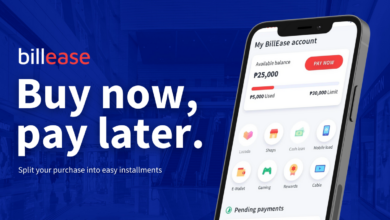4 Tips on How to Increase the Revenue of Your Small Business

Running a small business can be an exhilarating journey filled with endless possibilities. Yet, amidst the excitement, there’s a constant need to ensure a healthy flow of revenue to keep your venture thriving.
Whether you’re a budding entrepreneur or a seasoned business owner, understanding the art of increasing revenue is key to sustained success. In this article, we’ll delve into four invaluable tips that will empower you to supercharge your small business revenue.
From innovative marketing strategies to smart pricing techniques, we’ll uncover the secrets that can help you attract more customers, maximize profitability, and unlock untapped growth opportunities. So, get ready to embark on a transformative journey that will equip you with the knowledge and insights to take your business to new heights.
1. Targeted Marketing
To boost the revenue of your small business, implementing targeted marketing strategies is essential. Targeted marketing involves honing in on your ideal customer base, crafting personalized campaigns, and making the most of social media platforms.
This approach allows you to engage with the right audience and increase your chances of converting leads into paying customers.
Understanding your target audience is the foundation of effective marketing. By conducting market research and analyzing your existing customer data, you can gain valuable insights into their demographics, preferences, and behaviors.
This knowledge enables you to create buyer personas that represent your ideal customers.
For instance, if you run a gourmet coffee shop, your ideal customers might be young professionals who appreciate specialty coffee and have a higher disposable income.
Once you have a clear understanding of your target audience, personalizing your marketing campaigns becomes crucial. Customers today expect businesses to understand their unique requirements and provide tailored experiences.
Personalization can be achieved through various means, such as addressing customers by name in emails, offering personalized product recommendations based on their purchase history, or delivering targeted advertising messages that address their pain points directly.
By crafting personalized campaigns, you can forge a deeper connection with your audience, enhancing their trust and loyalty toward your brand. When customers feel understood and valued, they are more likely to engage with your business and make repeat purchases.
You can also utilize the targeting options available on social media platforms to narrow down your audience and ensure your content reaches the right people. This approach allows you to maximize the impact of your marketing efforts, generate brand awareness, drive traffic to your website or physical store, and ultimately boost your revenue.
2. Enhance Customer Experience
Customer experience reigns supreme. Enhancing customer experience is not only crucial for building strong relationships, but also for increasing your revenue. By going above and beyond to provide exceptional service, you can create loyal customers who become your brand advocates.
Building strong customer relationships is the foundation of a thriving business. Take the time to understand your customers’ needs and preferences. Communicate with them regularly, listen attentively to their feedback, and show genuine interest in their satisfaction. By fostering a sense of connection and trust, you can establish a loyal customer base that keeps coming back for more.
Exceptional customer service sets you apart from the competition. Strive to exceed customer expectations at every touchpoint. Train your employees to deliver personalized, friendly, and efficient service.
Respond promptly to inquiries and resolve issues with empathy and professionalism. By making your customers feel valued and well taken care of, you create a positive and memorable experience that encourages repeat business and word-of-mouth referrals.
Feedback and reviews from your customers are invaluable resources for improving your offerings. Encourage customers to provide feedback through surveys, ratings, and reviews. Pay attention to their suggestions, criticisms, and ideas for improvement.
Use this information to refine your products, services, and processes. When customers see that you take their feedback seriously and implement changes based on their input, they feel a stronger connection to your brand and are more likely to continue supporting your business.
Enhancing the customer experience requires a holistic approach. From the moment a customer interacts with your brand to post-purchase follow-up, every touchpoint should be designed to leave a positive and lasting impression.
Strive to create a seamless and enjoyable experience across all channels, whether it’s your website, physical store, social media platforms, or customer support channels.
3. Streamline Operations
Streamlining operations is a vital strategy for boosting revenue in your small business. By identifying and eliminating inefficiencies, automating repetitive tasks, and investing in small business scheduling software for productivity gains, you can optimize your operations, increase efficiency, and drive revenue growth.
Take a close look at your workflows, from order fulfillment to inventory management, and identify areas where time, resources, or materials are being wasted.
Streamlining these processes help reduce costs and improve overall productivity. Simplifying and optimizing operations not only saves money, but also enables you to provide faster and more efficient services to your customers.
Automating repetitive tasks is a game-changer when it comes to streamlining operations. Identify tasks that are performed regularly and involve manual input or data entry. These tasks often consume significant time and are prone to errors.
By implementing automation tools or software, you can reduce human error, improve accuracy, and free up valuable time for your team. Automation not only increases efficiency, but also allows your employees to focus on more strategic and revenue-generating activities.
Investing in small business scheduling software is a smart move for optimizing productivity. With scheduling software, you can efficiently manage appointments and organize your business.
This technology enables you to streamline communication, avoid scheduling conflicts, and ensure that resources are allocated effectively. By optimizing your scheduling processes, you can minimize downtime, enhance customer satisfaction, and improve overall productivity, leading to increased revenue.
4. Optimize Pricing Strategies
Optimizing pricing strategies is a crucial way to increase revenue for your small business. By understanding value perception, implementing dynamic pricing models, and offering bundled packages and promotions, you can maximize profitability while satisfying customer needs.
To begin, it’s essential to understand the value perception of your products or services. Customers make purchasing decisions based on their perception of value rather than just the price tag. Conduct market research to gain insights into what aspects of your offerings customers value the most.
Identify unique selling points, such as quality, convenience, or exclusivity, and emphasize them in your pricing strategy. By aligning your pricing with customer value perception, you can justify higher prices and increase revenue without sacrificing customer satisfaction.
Implementing dynamic pricing models allows you to adapt your prices based on various factors, such as demand, competition, or time of year. By utilizing pricing software or tools, you can analyze market trends, customer behavior, and competitor pricing to set optimal prices.
Dynamic pricing enables you to capture more value during peak periods, adjust prices to maximize sales during off-peak times, and optimize revenue based on real-time market conditions. This flexibility helps you stay competitive, optimize revenue streams, and meet customer expectations.
Offering bundled packages and promotions is an effective strategy to increase revenue and encourage customer spending. Bundling complementary products or services together not only enhances the perceived value, but also encourages customers to make larger purchases.
Additionally, offering promotions such as discounts, limited-time offers, or loyalty rewards can incentivize customers to choose your business over competitors. These strategies can attract new customers, stimulate repeat purchases, and create a sense of urgency, ultimately driving revenue growth.
Conclusion
Increasing the revenue of your small business requires a strategic and multifaceted approach. By implementing the four tips mentioned – targeted marketing, enhancing customer experience, streamlining operations, and optimizing pricing strategies – you can create a solid foundation for sustainable growth and profitability.
Incorporating these tips into your business strategy and staying agile in response to market dynamics will pave the way for increased revenue, improved customer satisfaction, and long-term success. Embrace these strategies, be proactive, and watch your small business thrive in today’s competitive landscape.



